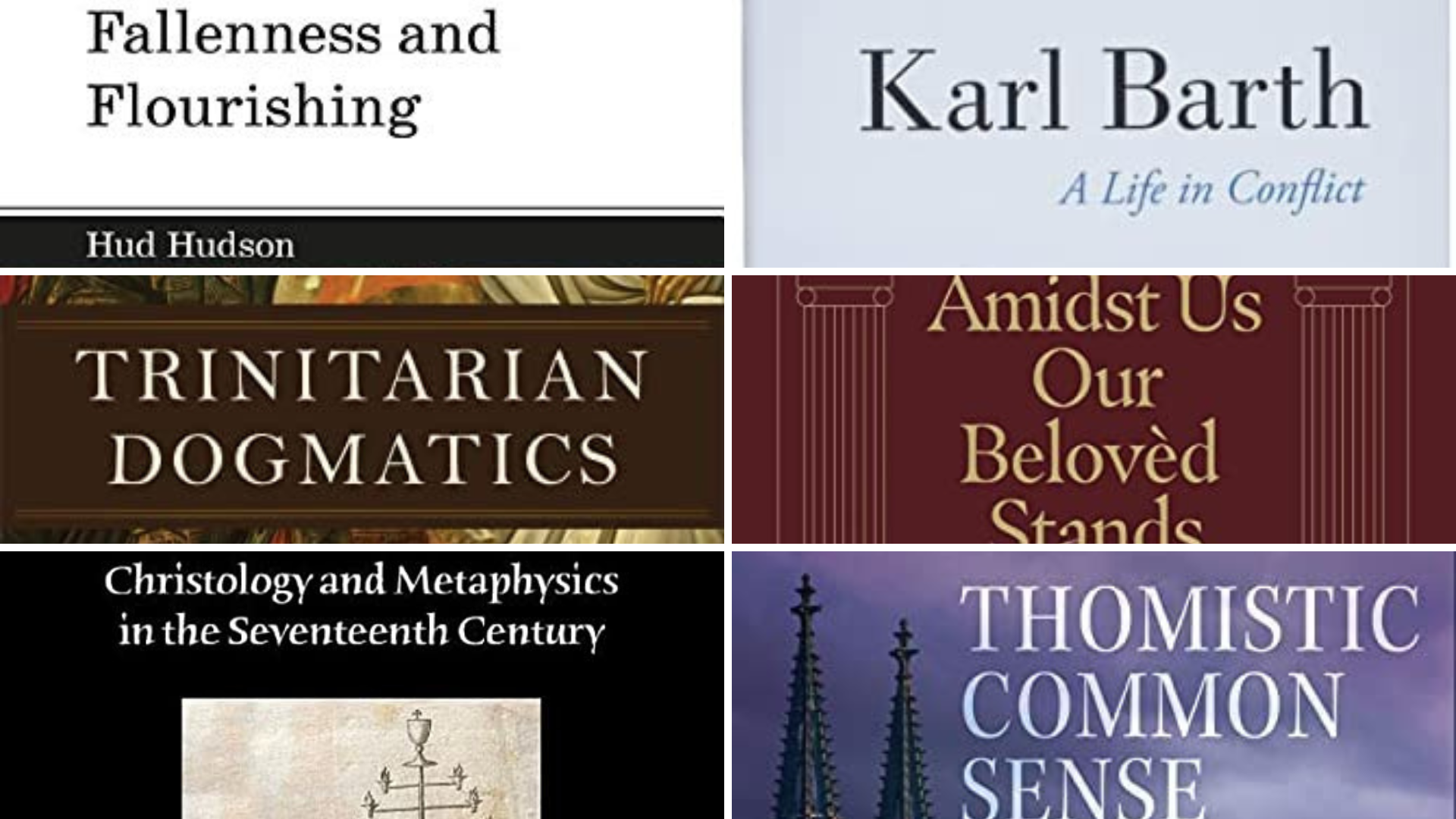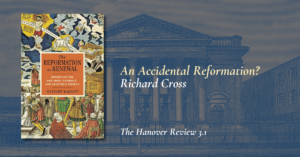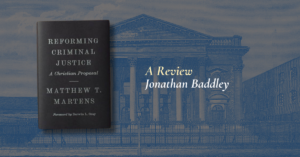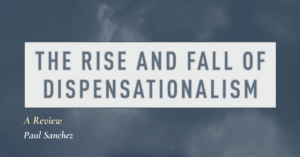Welcome back to our annual top books of the year post. Each year our board and fellows join together to submit their favorite book from the most recent year. Each book has a short synopsis of why it’s so great. You can find our previous recommendations here: 2020 and 2021. Links are embedded for ease. Happy reading! As a note: These may or may not have been published in 2022 but were at least read in 2022.
Trinitarian Dogmatics, D. Glenn Butner

Dr. Butner does a superb job of capturing the elements of the classical understanding of Trinitarianism, while also giving differing views a fair read even when disproving them. He adeptly models retrieval and the difficult task of bringing it to bear upon the modern mind. While Butner may go deeper than the unread person in the pew may be able to follow, the truly theologically minded churchgoer, though challenged, will find a wealth of doctrine to absorb, and the well-versed pastor and scholar will benefit from its Biblical, Dogmatic, and Historical riches. ~ Jason Alligood
I enjoyed this volume because it presents essential aspects of Trinitarian thought in an accessible and pedagogically effective way. Butner impressively covers central tenets of classical trinitarianism and important features in contemporary debates concisely, giving readers a helpful introduction to this field. ~ David Rathel
Baptists Through the Centuries: A History of a Global People, David Bebbington

With this second edition of his book Baptists Through the Centuries, Bebbington again provides powerful insight into the Baptist story. However, the breadth of his coverage is the most enjoyable part of the book. He explores topics as diverse as religious liberty, the social gospel, race, and he devotes significant energy to Baptists in regions beyond the English-speaking world that typically consumes most of the attention in Baptist history. He does all of this in just over three hundred pages. I especially recommend this book to Southern Baptists, who too often think of Baptists as a uniquely American and southern phenomenon. Bebbington reminds us of the greater and far richer story of the Baptist family. ~ Paul Sanchez
Thomistic Common Sense, Reginald Garrigou-Lagrange

I’ve just finished teaching my sixth year of an introduction to philosophy course at Colorado Christian University and, while I think I’ve taught it well, it wasn’t until I read Reginald Garrigou-Lagrange’s Thomistic Common Sense that I feel like I actually understand the significance of “conceptual realism” and why it explains everything. Light bulbs kept going off in my head as I read it, taking copious notes. Now that I’m finished with it, I’m convinced more than ever of the importance of classical philosophy in the vein of Plato and Aristotle, Augustine and Aquinas. Garrigou helped me understand God, the metaphysics of being, and even my own self better. ~ Ian Clary
Theoretical-Practical Theology, Volume 2: Faith in the Triune God, Petrus Van Mastricht

Mastricht is one of my new go-to sources for solid doctrine, and this book came to me at just the right time. I’ve lately been having to do a lot of remedial work in my doctrine of God, and this was the most useful resource I’ve been reading (outside of the Bible). This volume surveys major themes concerning the existence and attributes of God, and breaks down each chapter into four sections: “The Scriptural Part,” “The Dogmatic Part,” “The Elenctic Part,” and “The Practical Part.” I found this arrangement so helpful that I taught a class at my church on these subjects and used this same outline for my lessons. It was a big hit, I think. Plus, one of my favorite eighteenth-century Baptist theologians quotes from Mastricht on occasion, so it was also helpful to my research to read one of my hero’s heroes. ~ Garrett Walden
Do We Have Free Will?: A Debate, Robert H. Kane and Carolina Sartorio

While not really a debate about whether we have free will (both authors agree about that), this book is a wonderful introduction to an influential libertarian view and an increasingly popular compatibilist view about free will. Kane (libertarian) and Sartorio (compatibilist) introduce many key issues in the free will debate and present their own views in a simple and straightforward way. What makes the book especially valuable, to my mind, is Sartorio’s succinct summaries of 1) motivations for compatibilism, 2) arguments for incompatibilism (focusing on the consequence argument and the original design manipulation argument), and 3) the main types of responses to those arguments. The book also highlights how Kane has modified his views over the years (especially concerning “self-forming actions”), and near the end Sartorio raises a serious objection to Kane’s most recent modifications, which will be of interest even to those already familiar with the views introduced and debated in this book. ~ Taylor Cyr
Fallenness and Flourishing, Hud Hudson

“I have not read all the books published in the Oxford Studies in Analytic Theology series, but I have read many of them. Hudson’s Fallenness and Flourishing is a recent offering from this series and, compared to those in this series that I have read, it is unique in a host of ways. The most unique, though, is that it is spiritually edifying and challenging. Now, I am not entirely sure whether an academic theology text should be spiritually edifying/challenging nor whether describing it thusly counts as a compliment or a criticism. I mean it as a compliment. Hudson’s writing, thought experiments, and explanations of the human predicament and the prescribed
remedy—viz., obedience to God—are captivating. They are challenging in that they operate as a mirror that exposes warts and wrinkles. Perhaps another word to describe what I mean is: convicting. Fallenness and Flourishing is not dry, academic prose. Instead, it is an engaging work of diagnosis and prescription, one which resonates deep in my affections. To my mind, this book will repay careful re-reading and further study. As a work in Christian theology, I think the Christian reader will find spiritual benefit as well as academic fodder.” ~ JT Turner (Full Review in JAT, 10)
Amidst Us Our Beloved Stands: Recovering Sacrament in the Baptist Tradition, Michael A.G. Haykin

Finally, the long awaited text on Baptist sacraments has arrived! Michael Haykin’s book excellently traces the historical Baptist understanding of the Lord’s Supper and Baptism within the Particular Baptist tradition, examining voices such as Charles Spurgeon, Anne Dutton, Joseph Stennett, and Thomas Steevens. Haykin’s book is a needed and long overdue resource for Baptist pastors today. For those that are in search of a text that testifies to the complexity and depth of the sign and signification of the ordinances, look no further. I have no doubt that this resource will prove to be a breath of fresh air to many that desire to communicate the importance of the sacraments to their congregations. ~ Aaron Pendergrass
Karl Barth: A Life in Conflict, Christiane Tietz

Whatever one makes of Karl Barth’s theology, he is not a figure that one can easily ignore. In this excellent biography, Christiane Tietz provides a sure-handed guide to the life and intellectual development of one of the twentieth century’s most significant theological figures. I found this to be among the most fascinating books I read in 2022 for at least three reasons. First, the story of Barth’s life is an inherently fascinating one and Tietz tells it with exceptional skill. I thoroughly enjoyed, for example, the lively and very human accounts of Barth’s early struggles to prepare his university lectures in a timely fashion. Second, the book is richly researched and analyzes sections of Barth’s personal correspondence which have only relatively recently been made available in unredacted form. In these sections Tietz gives a vivid account of Barth’s longstanding extra-marital relationship with Charlotte von Kirschbaum. This section of the book can make for uncomfortable reading, but Tietz handles it with skill and professionalism, neither excusing nor condemning her subjects, but instead leaving readers to evaluate the material and decide for themselves. Third and finally, Tietz does a wonderful job of setting Barth’s theological trajectory within the wider context of nineteenth and twentieth-century theological developments. The result is that one comes away from reading this book with a better understanding of both Barth himself and the times in which he lived. ~ Matthew Bingham
Christology and Metaphysics in the Seventeenth Century, Richard Cross

There were several books that I read this year that deserve to be mentioned. Not least of them is Russell Friedman’s Medieval Trinitarian Thought from Aquinas to Ockham. But the best book I read this year is again by Richard Cross. His work on the metaphysical theories of the hypostatic union in the seventeenth century is masterful. It is typical Cross: Incredibly dense but it will repay the labor it requires tenfold. ~ Jordan Steffaniak
John Leland: A Jeffersonian Baptist in Early America, Eric C. Smith

John Leland is one of the most important, fascinating, and controversial Baptists in the early days of the American Republic. Smith provides a wonderful biography that is fun to read and insightful into the theological mind of this Baptist preacher. Leland’s life spanned from the Revolution to the presidency of William Henry Harrison. Through it all, he was committed to Baptist principles but not always in a way detached from politics. Smith’s book is a great example of how history can be written in a way that is academically sound but enjoyable to read. ~ Jake Stone
Participation and Atonement, Oliver Crisp

Crisp brings his trademark clarity to the topic of the atonement, deftly and generously identifying some of the outstanding questions left unresolved by historical and contemporary accounts of atonement. Crisp seeks to integrate the best of these accounts into his own account of atonement as “participation” in the divine life whilst simultaneously exploring what this means for participation in the shared life of the church. This book feels like a conversation–an educated conversation with the past, and an invitation to generous conversation in the present that constructively moves beyond the old, familiar territory of previous discussions. ~ Jacob Denhollander
Biblical Philosophy, Dru Johnson

In “Biblical Philosophy” Dru Johnson insightfully demonstrates that ancient Israel formed their Scriptures around their own philosophical tradition. This philosophical tradition, marked by several distinguishing characteristics, is then continued and elaborated on by the New Testament writers. As modern theological debates swirl around the use of philosophy in theology, Johnson thoughtfully slips in via this monograph to say that Israel used philosophy indeed, and this philosophy wasn’t one that was wholly dependent upon the intellectual ponderings of their neighbors, whether they be Egyptian, Greek, or Mesopotamian. ~ Cody Floate
2000 of Christ’s Power: The Age of the Early Church Fathers, Nick Needham

This is a great resource for use in the local church. Most in our church had never before studied church history. This book gave members a solid foundation for understanding the earliest centuries of the church, covering major figures, theological controversies, and ecclesiological developments. ~ Brandon Ayscue
Rethinking the Atonement New Perspectives on Jesus’s Death, Resurrection, and Ascension, David Moffit

The blurbs on the back of the book should be enough to catch any reader’s attention. Richard Hays says that this book “compels us to rethink what we thought about the New Testament.” Amy Peeler writes that Moffitt has changed how she conceives of her faith. Kevin Vanhoozer calls this book a “Copernican Revolution” in atonement theology. Alan Torrance declares Rethinking Atonement to be “field changing.” Can a book really live up to that level of praise? While I’m not ready to join those top-scholars in how they extol the virtues of this book I’m more than willing to say that this book really led me to consider some key elements of how atonement happens. This book makes a forceful case for thinking about atonement in a broader sense—including the entire atoning work of Christ, from incarnation to ascension, and not just the work of the cross—without ignoring the narrower sense of atonement. This is actually something I’ve written about elsewhere, so I really appreciated the exegetical arguments Moffitt makes for a broader sense of atonement. However, what really gave me something to ponder—and I’m guessing it is what the scholars who endorsed this book are referring to—is that the heart of atonement, where atonement climaxes is Jesus’s work as the heavenly high priest that happens in the heavenly holy of holies. As Moffitt writes, “Hebrews’ emphasis on Jesus’s living presence in heaven—the location where the author consistently claims Jesus made his offering—implies that it is not the death/slaughter of Jesus that atones [he means the “narrow sense”] but the presentation of his life before God in the heavenly holy of holies.” (98) To be honest, I’m not sure what I make of these claims. Nevertheless this has served as the most provocative, and exegetically robust, account of atonement I’ve read in years. ~ Chris Woznicki
De Trinitate, Augustine

Not only does Augustine put on a masterclass on good trinitatian theology, Christology, and exegetical philosophy, he also exhibits the virtue in which theology ought to be pursued: humble reverence. ~ Hunter Hindsman
Testimonies to the Truth: Why You Can Trust the Gospels, Lydia McGrew
The gospels claim to be the testimony of people who were in a position to know what Jesus said and did, including his dying on a cross and rising from the dead. If they are reliable historical sources, their reader may come to know (not just believe) those most important truths about Jesus. In her wonderful new little book, Testimonies to the Truth, Lydia McGrew gives us a thoroughly convincing defense of that big “if”. She very effectively describes what reliable witness accounts look like and shows that the gospels fit those patterns time and time again. Lydia makes good on her ministry slogan that claims to “make common sense rigorous”. Her careful thinking is indeed connecting the gospel accounts to our modern-day, reasonable intuitions of how truthful witnesses sound like in the real world, and reading her making those powerful connections had me mumble “oh…, that makes so much sense!” at just about every chapter.
Years ago, when I read the gospels as an adult atheist, they challenged my unbelief partly because they struck me as having the ring of truth, even though I couldn’t explain immediately what I saw that made them so truthful. But Lydia can and does explain it all: external confirmations, unexplained allusions, undesigned coincidences, unnecessary details, unified personalities, her excellent book carefully breaks down those intuitive markers of truth we find in the gospels, and thereby not only provides solid justification for Christian belief, but also trains the lay person to become the Apologist. What a gift. ~ Guillaume Bignon, Ph.D. Philosopher, apologist, and author of “Confessions of a French Atheist”.



